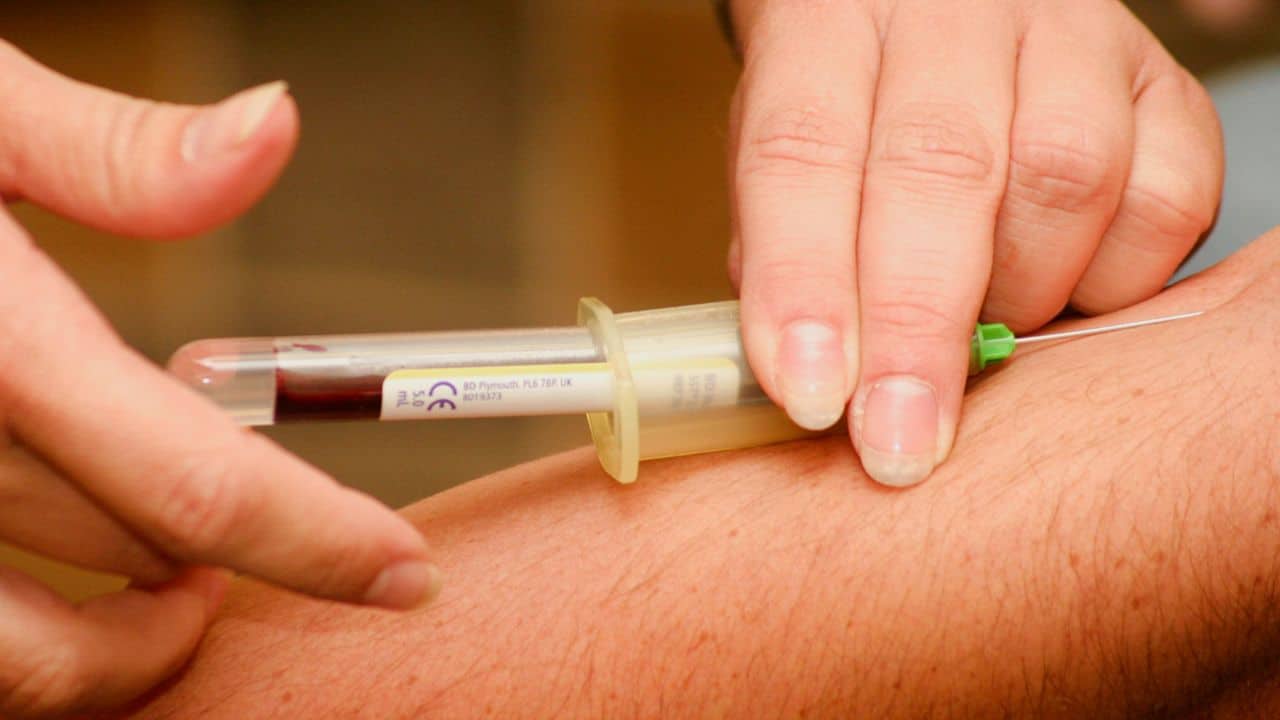
Photo by Hush Naidoo Jade Photography on Unsplash
Guardant’s Blood Test for Colorectal Cancer Gets FDA Adviser Approval
May 24, 2024
Guardant is now one step closer to FDA approval for its latest blood test, which tests for colorectal cancer.
Per Reuters, an FDA advisory panel voted seven to two in favor of approving the test — known by the market name Shield — and the test is expected to be formally approved later this year.
“The advisory committee’s strong support for the approval of Shield reinforces the crucial role that a blood test option can have in improving CRC screening rates for those at average risk,” Guardant co-CEO AmirAli Talasaz said in a statement to the outlet.
The two dissenting panelists raised concerns that the Guardant blood test wasn’t as accurate as a proper colonoscopy in detecting the cancer, noting that the blood test only detected 13% of advanced adenomas, which are pre-cancerous tumors indicative of developing CRC.
Colorectal cancer, sometimes known as CRC, is the second-leading cause of cancer fatalities in the United States. The FDA claims that CRC kills more than 50,000 people a year. The disease itself afflicts approximately 150,000 people annually.
Guardant is just the latest company to receive a preliminary thumbs-up from the FDA for its cancer products.
Just last week, Imdelltra received an FDA sign-off for its use as a small-cell lung cancer treatment.
The medication, which is produced by Amgen and goes by the generic name tarlatamab, can be used as a stand-alone treatment or in combination with other medications.
Clinical research has demonstrated that Imdelltra prolongs life expectancy and slows the growth of tumors in patients who take it compared to those who do not.
“Of the more than 2.2 million patients who are diagnosed with lung cancer worldwide each year, small-cell lung cancer comprises 15%, or 330,000, of those cases,” Amgen told CNBC. Approximately 80% to 85% of people with small-cell lung cancer are discovered to be in an advanced stage of the disease, according to research published in the Journal of Cancer.
Even with this encouraging advancement, several cancer medications remain unproven in their usefulness over five years after they were made more widely available.
A study published in the Journal of the American Medical Association claims that from 2013 to 2017, 46 cancer drugs were approved more quickly. Of these, 63% switched to routine approval. However, just 43% of trials demonstrated a therapeutic impact. This study came to the conclusion that, although prompt approval might be advantageous, many cancer drugs do not appear to have much potential for extending the lives of patients or improving their quality of life.
Recent News
Koenigsegg Jesko Burns to Ashes at Event
In a shocking incident, a Koenigsegg Jesko was destroyed by fire during the 6to6 Motor Europe Tour in Greece on Saturday morning. Thankfully, both the driver and passenger escaped unharmed, but the rare hypercar is now beyond repair.
Paramount Faces Uncertain Future After Skydance Merger Collapse
The future of Paramount Global (PARA) is now uncertain after Shari Redstone unexpectedly ended merger talks with Skydance Media. Redstone, controlling Paramount through National Amusements (NAI), halted the negotiations abruptly, puzzling industry insiders and investors.
Central Banks Remain Cautious on Interest Rate Cuts
Central banks are expected to reveal their positions on interest rate cuts this week, with decisions from advanced economies anticipated. Following the Federal Reserve’s recent easing projections, policymakers from the UK to Australia remain cautious about reducing borrowing costs due to inflation concerns.
Bill Gates Expresses Optimism for Nuclear Power Project
Bill Gates, the renowned Microsoft founder, recently shared his optimism about the future of a groundbreaking nuclear power project led by his energy company, TerraPower. Speaking on “Face the Nation,” Gates highlighted the strong bipartisan support for nuclear energy, which he believes will ensure the project’s progress regardless of political shifts in Washington.
